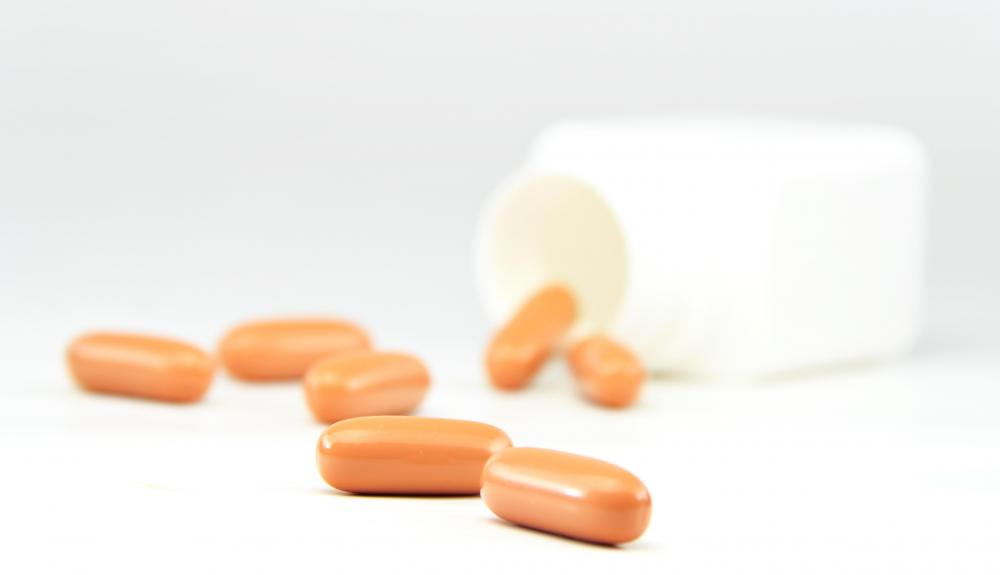At WiseGEEK, we're committed to delivering accurate, trustworthy information. Our expert-authored content is rigorously fact-checked and sourced from credible authorities. Discover how we uphold the highest standards in providing you with reliable knowledge.
What are the Different Types of Vitamins for Anxiety?
There are a multitude of different vitamins for anxiety that help prevent and treat an episode or disorder. The vitamins most often associated with managing anxiety are B-complex vitamins and vitamin C. Often times, people find that starting a simple multi-vitamin regimen is all that is needed to quell anxiety. If a person is under chronic stress and anxiety, however, the body becomes depleted of essential nutrients that protect the functioning of the nervous system more quickly. In this case, supplementing with extra amounts of B-complex and C is sometimes recommended.
B vitamins for anxiety are found in abundance in a well-rounded diet. Most are found in meat, dairy, and whole-grain cereal products. Most vegetables contain significant amounts of B vitamin as well. Processed foods and refined grains are most often deficient in vitamin B because the bleaching and refining processes strip the vitamin from the product.

If supplementing B vitamins for anxiety is deemed necessary, experts usually recommend that all 11 of the B vitamins be taken together because they work in a synergistic way with one another. A typical daily dose of B-complex vitamin is 50 to 100 mg once or twice a day, but higher doses can sometimes be more effective, and because B vitamins are water-soluble, their upper intake limit is significantly high.

The B vitamins for anxiety each work by slightly different mechanisms. Vitamin B1, or thiamine, facilitates the synthesis of several mood neurotransmitters like serotonin and dopamine. Vitamin B6, pyidoxal phosphate, is implicated in the synthesis of Gamma-aminobutyric acid (GABA). Synthetic GABAergic drugs, like benzodiazepines, increase this neurotransmitter in the nerve synapse to quell the body’s stress reaction, and supplementing with B6 is thought to work in much the same way. Vitamin B12, or cobalamin, maintains the health and lining of the actual nerve cell, which then facilitates proper nerve transmission, staving off many physical manifestations of anxiety.

Vitamin C exhibits its anti-anxiety action by helping the adrenal glands function properly, which keeps the body’s “fight or flight” response from becoming over-exaggerated. It is also the main precursor to many hormones that are involved with the stress response, like cortisol. Maintaining adequate levels of vitamin C ensures these hormones remain balanced. Like the B-complex vitamins, vitamin C is water-soluble, which means that it is not usually toxic at high levels. A typical dose of vitamin C for anxiety is 1,000 mg once or twice a day.
AS FEATURED ON:
AS FEATURED ON:















Discuss this Article
Post your comments